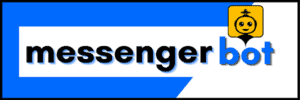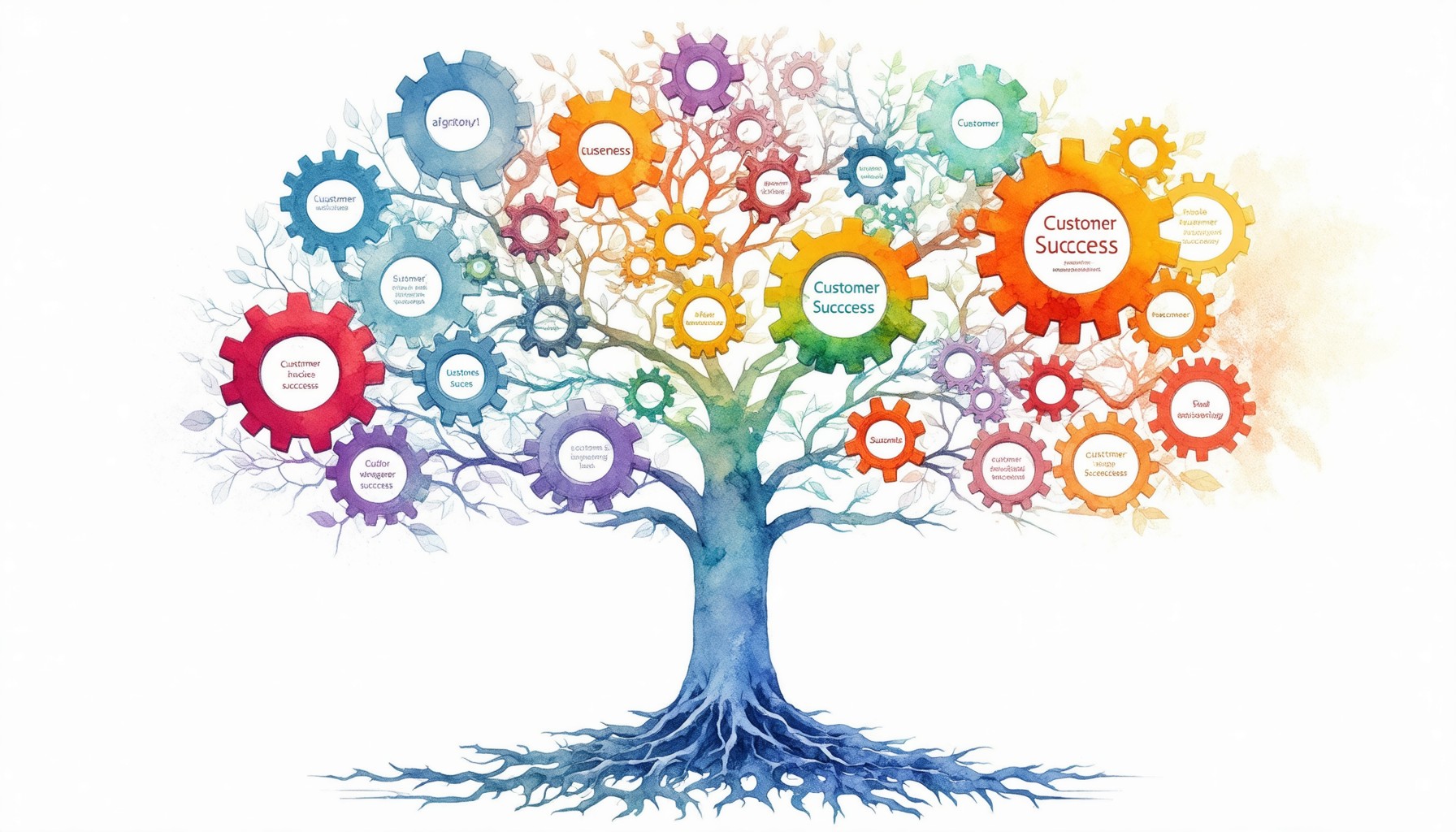Key Takeaways
- Understanding Legality: Facebook bots are legal if used ethically; malicious usage can lead to legal repercussions.
- Compliance is Key: Adhere to Facebook’s policies and data protection regulations like GDPR to avoid penalties.
- Enhance Engagement: Bots improve customer interactions, providing instant responses and personalized experiences on Facebook Messenger.
- Utilize Free Tools: Explore free bots for Facebook like Chatfuel and ManyChat to automate customer support and marketing without costs.
- Monitor Performance: Regularly analyze bot interactions to optimize user experience and ensure compliance with legal standards.
In today’s digital landscape, the use of a bot for Facebook has become increasingly popular among businesses and individuals alike. As we navigate the world of Facebook bots, it’s essential to understand not only their functionality but also the legal implications and best practices for implementation. This article will delve into critical questions such as, Are Facebook bots illegal? and Can I use bots on Facebook?, providing clarity on the regulatory landscape surrounding bots for Facebook Messenger. Additionally, we will explore the various types of chat bots for Facebook, offer a step-by-step guide on how to make a bot for Facebook, and discuss the potential risks associated with using these tools. By the end of this article, you’ll be equipped with the knowledge to effectively utilize a Facebook Messenger bot for business, ensuring you can enhance engagement while maintaining authenticity. Join us as we uncover the intricacies of Facebook Messenger bots and discover the best options available, including free bots for Facebook that can elevate your online presence.
Are Facebook bots illegal?
Understanding the Legality of Bots for Facebook
The legality of Facebook bots is a nuanced topic that depends on their usage and intent. While creating bots is not inherently illegal, their application can lead to legal and ethical issues, particularly when they are employed for malicious purposes.
1. **Legitimate Use of Bots**: Bots can serve various beneficial functions on Facebook, such as automating customer service responses or managing social media interactions. These Messenger Bots enhance user experience by providing quick replies and engaging users effectively.
2. **Malicious Activities**: Conversely, bot farms, which generate a large number of automated accounts, are often associated with fraudulent activities. These bots can engage in click fraud, artificially inflating ad metrics by simulating genuine user interactions. This practice violates the terms of service of advertising platforms and can lead to legal repercussions for the entities involved.
3. **Legal Implications**: The use of bots for deceptive practices can fall under various laws related to fraud and digital marketing. For instance, the Computer Fraud and Abuse Act (CFAA) in the United States addresses unauthorized access to computer systems, which can include the use of bots to manipulate online platforms.
4. **Best Practices**: To ensure compliance with legal standards, businesses should adhere to ethical guidelines when deploying bots. This includes transparency about bot usage, obtaining user consent, and avoiding practices that could mislead users or violate platform policies.
In summary, while Facebook bots themselves are not illegal, their application can lead to significant legal issues if used for fraudulent activities. Businesses should focus on ethical bot usage to enhance user engagement without crossing legal boundaries. For further reading on the implications of bot usage, refer to resources from the Federal Trade Commission (FTC) and industry standards on digital marketing practices.
The Regulatory Landscape Surrounding Facebook Bots
The regulatory landscape for Facebook bots is continually evolving, influenced by advancements in technology and growing concerns over privacy and security. Understanding this landscape is crucial for businesses looking to implement bots effectively.
1. **Compliance with Platform Policies**: Facebook has established specific guidelines regarding the use of bots on its platform. These policies are designed to protect users from spam and ensure that bots provide genuine value. Businesses must familiarize themselves with these rules to avoid penalties or account suspension.
2. **Data Protection Regulations**: With the rise of data privacy laws, such as the General Data Protection Regulation (GDPR) in Europe, businesses must ensure that their bots comply with these regulations. This includes obtaining explicit consent from users before collecting personal data and providing clear information on how this data will be used.
3. **Monitoring and Accountability**: Regulatory bodies are increasingly focusing on the accountability of businesses using bots. Companies must implement monitoring systems to track bot interactions and ensure compliance with legal standards. This proactive approach can help mitigate risks associated with bot usage.
4. **Future Trends**: As technology advances, we can expect more comprehensive regulations surrounding the use of bots on platforms like Facebook. Staying informed about these changes will be essential for businesses to adapt their strategies and maintain compliance.
In conclusion, navigating the regulatory landscape surrounding Facebook bots requires a commitment to ethical practices and compliance with existing laws. By prioritizing transparency and user consent, businesses can leverage bots effectively while minimizing legal risks.

Can I Use Bots on Facebook?
Yes, you can use bots on Facebook, specifically within Facebook Messenger. Facebook bots are automated applications designed to interact with users through Messenger. They can perform a variety of tasks, such as answering frequently asked questions, providing customer support, and facilitating transactions. These bots enhance user engagement by offering instant responses and personalized experiences.
To create a Facebook bot, developers typically use the Messenger Platform, which provides tools and APIs to build and deploy bots effectively. Here are some key points to consider:
- Functionality: Bots can handle customer inquiries, send notifications, and even process orders. They can be programmed to respond to specific keywords or phrases, making them versatile for different business needs.
- User Experience: A well-designed bot can significantly improve user experience by providing quick and relevant information. According to a study by Juniper Research, chatbots are expected to save businesses over $8 billion annually by 2022 through improved customer service efficiency.
- Integration: Facebook bots can be integrated with various services, such as CRM systems and e-commerce platforms, allowing for seamless operations and data management.
- Compliance: It’s essential to adhere to Facebook’s policies regarding bot usage. Bots must respect user privacy and comply with data protection regulations, such as GDPR.
- Resources: For developers interested in creating a Facebook bot, the official Facebook for Developers site offers comprehensive documentation and resources to get started.
By leveraging Facebook bots, businesses can enhance their communication strategies, streamline operations, and ultimately improve customer satisfaction. For more detailed guidelines, refer to Facebook’s official documentation on Messenger bots.
Exploring the Use Cases for Bots on Facebook
Facebook bots serve a multitude of purposes, making them invaluable tools for businesses. Here are some prominent use cases:
- Customer Support: Bots can provide 24/7 customer support, answering common queries and resolving issues without human intervention. This not only saves time but also enhances customer satisfaction.
- Lead Generation: By engaging users through interactive conversations, bots can capture leads effectively. They can ask qualifying questions and gather contact information, streamlining the sales process.
- Personalized Marketing: Bots can deliver tailored content and offers based on user preferences and behaviors, improving engagement and conversion rates.
- Order Processing: Businesses can utilize bots to facilitate transactions directly within Messenger, allowing customers to place orders seamlessly.
For those looking to implement a Facebook Messenger bot for business, understanding these use cases can help in designing a bot that meets specific business objectives.
What is a Facebook bot?
A Facebook bot is an automated software application that interacts with users on the Facebook platform, primarily through Messenger. These bots utilize artificial intelligence (AI) to simulate human conversation, providing users with instant responses to inquiries, facilitating customer service, and enhancing user engagement.
Defining Facebook Bots and Their Functionality
Facebook bots serve as a bridge between businesses and their customers, streamlining communication and improving user experiences. Key features of Facebook bots include:
- Automated Responses: Bots can handle frequently asked questions, providing immediate answers without human intervention. This improves response times and customer satisfaction.
- 24/7 Availability: Unlike human agents, Facebook bots can operate around the clock, ensuring that users receive assistance at any time, which is crucial for businesses with global audiences.
- Personalization: Advanced bots can analyze user data to deliver personalized experiences, tailoring responses based on user preferences and past interactions.
- Integration with Services: Facebook bots can be integrated with various services, such as e-commerce platforms, allowing users to make purchases directly through Messenger.
- Lead Generation: Businesses can use bots to capture leads by engaging users in conversation and collecting their contact information for follow-up.
According to a report by Business Insider, the use of chatbots is expected to grow significantly, with 80% of businesses planning to use them by 2022. This trend highlights the increasing importance of Facebook bots in digital marketing strategies.
Types of Bots for Facebook Messenger: A Comprehensive Overview
There are several types of bots for Facebook Messenger, each designed to serve different purposes:
- Customer Service Bots: These bots handle inquiries, complaints, and support requests, ensuring that customers receive timely assistance.
- Sales Bots: Focused on driving sales, these bots can guide users through product selections, answer questions about features, and facilitate purchases directly within Messenger.
- Marketing Bots: These bots engage users with promotional content, special offers, and personalized recommendations, enhancing marketing efforts.
- Entertainment Bots: Designed for fun interactions, these bots can play games, share jokes, or provide quizzes, keeping users engaged and entertained.
- Informational Bots: These bots deliver news updates, weather forecasts, or other relevant information, helping users stay informed.
For more detailed insights on the functionality and benefits of Facebook bots, you can refer to resources from Facebook’s official Messenger page and industry analyses from sources like HubSpot.
How to Set Up a Facebook Bot?
Setting up a bot for Facebook can significantly enhance your engagement with users. Here’s a step-by-step guide on how to make a bot for Facebook that effectively communicates with your audience.
Step-by-Step Guide on How to Make a Bot for Facebook
- Create a Facebook Developer Account: Visit the Facebook for Developers website and sign up for a developer account. This is essential for accessing the tools needed to build your chatbot.
- Create a New App: Once logged in, navigate to the “My Apps” section and click on “Create App.” Choose the type of app that best fits your needs, typically “Business” for chatbot development.
- Set Up Messenger: Select the Messenger product from the app dashboard. This will allow you to integrate your chatbot with Facebook Messenger, enabling direct communication with users.
- Connect Your Facebook Page: Link your Facebook business page to the app. This is crucial as the bot will operate through this page, allowing it to interact with users.
- Generate a Page Access Token: In the Messenger settings, generate a Page Access Token. This token is necessary for your bot to authenticate and send messages on behalf of your page.
- Build Your Chatbot Logic: Utilize a chatbot builder like Chatfuel or ManyChat, or code your bot using the Messenger API. Design the conversation flow, including welcome messages, default responses, and navigation options.
- Test Your Bot: Before going live, thoroughly test your bot using the Messenger platform. Ensure that it responds correctly to user inputs and follows the intended conversation flow.
- Launch Your Bot: Once testing is complete, publish your bot. Promote it on your Facebook page to encourage user interaction.
- Monitor and Optimize: After launch, monitor user interactions and feedback. Use analytics tools to track performance and make necessary adjustments to improve user experience.
Tools and Resources for Creating a Bot for Facebook
To create an effective bot for Facebook, consider utilizing various tools and resources that can streamline the process:
- Chatfuel: A user-friendly platform that allows you to create bots for Facebook Messenger without coding.
- ManyChat: Another popular option for building chat bots for Facebook, offering robust features for marketing automation.
- Messenger API: For those with coding skills, the Messenger API provides the flexibility to create custom bots tailored to specific needs.
- Brain Pod AI: Explore Brain Pod AI for advanced AI chat assistant solutions that can enhance your Facebook bot’s capabilities.
By following these steps and utilizing the right tools, you can successfully create a free bot for Facebook that engages users and drives business results.

Can bots be harmful?
Yes, bots can be harmful in various ways, depending on their design and usage. Here are some key points to consider:
- Malicious Bots: Some bots are created with harmful intentions, such as spreading malware, stealing personal information, or conducting fraud. For example, bots can scrape data from websites, leading to privacy violations and identity theft.
- Spam and Scams: Bots can flood social media platforms and forums with spam, promoting scams or misleading information. This can undermine trust in online communities and lead to financial losses for individuals and businesses.
- Disinformation: Bots are often used to disseminate false information, particularly during elections or public health crises. This can manipulate public opinion and create confusion, as seen in various studies on social media influence.
- Resource Drain: Bots can overload servers and websites, causing slowdowns or crashes. This is particularly problematic for businesses that rely on their online presence for sales and customer engagement.
- Privacy Concerns: Bots that collect data can pose significant privacy risks. They may track user behavior without consent, leading to ethical concerns and potential legal issues under regulations like GDPR.
To mitigate these risks, it is essential to implement robust security measures, such as CAPTCHA systems, firewalls, and regular monitoring of bot activity. Understanding the dual nature of bots—both beneficial and harmful—can help users and organizations navigate their use more effectively.
Potential Risks and Downsides of Using Bots for Facebook Messenger
When considering the implementation of a bot for Facebook Messenger, it’s crucial to be aware of the potential risks involved:
- Reputation Damage: If a bot provides incorrect information or fails to respond appropriately, it can damage a brand’s reputation.
- Compliance Issues: Using bots without adhering to Facebook’s policies can lead to account suspension or bans.
- User Frustration: Poorly designed bots can frustrate users, leading to negative experiences and decreased engagement.
How to Mitigate Harmful Effects of Bots on Your Facebook Account
To ensure that your Facebook Messenger bot operates effectively and safely, consider the following best practices:
- Regular Updates: Keep your bot updated to address any security vulnerabilities and improve functionality.
- User Feedback: Actively seek user feedback to identify areas for improvement and enhance user experience.
- Transparency: Clearly communicate to users that they are interacting with a bot, which can help manage expectations.
Do Bot Followers Ruin Your Account?
Yes, buying bot followers can significantly harm your Facebook account. Here’s a detailed analysis of the risks involved:
- Engagement Rates: Purchased followers are typically bots or inactive accounts that do not engage with your content. This results in low engagement rates, which can negatively impact your account’s visibility. Facebook’s algorithm prioritizes content that receives genuine interactions, meaning your posts may not appear in the feeds of real followers.
- Credibility and Authenticity: Having a high follower count with low engagement can raise red flags for potential followers and brands. Authenticity is crucial on social media; users are more likely to trust accounts that have a genuine following. Brands may also hesitate to collaborate with accounts that appear to have inflated follower numbers.
- Account Penalties: Facebook actively works to identify and remove fake accounts. If your account is found to have a significant number of bot followers, you risk being penalized, which can include reduced reach or even account suspension. This can severely limit your growth potential.
- Long-Term Growth: While buying followers may provide a temporary boost in numbers, it does not contribute to sustainable growth. Real followers are more likely to engage with your content, share it, and help you grow organically. Focusing on building a genuine community will yield better results in the long run.
- Alternatives to Buying Followers: Instead of purchasing followers, consider strategies such as engaging with your audience, using relevant hashtags, collaborating with influencers, and creating high-quality content. These methods foster organic growth and enhance your account’s reputation.
In conclusion, while the allure of a large follower count may be tempting, the risks associated with buying bot followers far outweigh any short-term benefits. For a successful Facebook strategy, prioritize authenticity and engagement to build a loyal and active audience.
The Impact of Bot Followers on Your Facebook Presence
Bot followers can severely impact your Facebook presence in several ways:
- Reduced Organic Reach: Facebook’s algorithm favors posts that generate authentic engagement. If your follower base is inflated with bots, your posts may receive less visibility, leading to a decline in organic reach.
- Negative Brand Perception: Brands and users are increasingly aware of the importance of genuine engagement. An account with a high number of bot followers may be perceived as less trustworthy, affecting potential partnerships and collaborations.
- Inaccurate Analytics: Having bot followers skews your analytics, making it difficult to gauge the true performance of your content. This can lead to misguided strategies that do not resonate with your actual audience.
To maintain a healthy Facebook presence, focus on building a community of real followers who are genuinely interested in your content. This approach not only enhances your credibility but also fosters meaningful interactions that can drive your brand’s success.
Best bot for Facebook
Comparing the Best Chat Bots for Facebook: Features and Benefits
When exploring the best bots for Facebook, it’s essential to consider their features and benefits. Leading options include Messenger Bot, Brain Pod AI, and other notable competitors.
1. **Messenger Bot**: This platform excels in automating responses and managing user interactions seamlessly. With features like workflow automation, lead generation, and multilingual support, it stands out as a versatile solution for businesses aiming to enhance customer engagement. The integration capabilities allow for easy deployment across various digital environments, making it a top choice for many.
2. **Brain Pod AI**: Known for its advanced AI capabilities, Brain Pod AI offers a robust chat assistant that can handle multilingual interactions, making it ideal for businesses with a global audience. Its user-friendly interface and comprehensive analytics tools help businesses optimize their engagement strategies effectively. For more information, visit the [Brain Pod AI homepage](https://brainpod.ai).
3. **Zendesk**: This platform provides a strong focus on customer support, integrating chatbots into its service offerings. Its bots are designed to enhance user experience by providing timely responses and support. Learn more about their solutions on the [Zendesk Messenger bots page](https://www.zendesk.com/blog/chatbots-facebook-messenger/).
4. **HubSpot**: HubSpot’s Messenger bots are tailored for marketing and sales, helping businesses automate lead generation and customer interactions. Their integration with CRM tools makes it easier to manage customer relationships. Check out their offerings on the [HubSpot Messenger bots page](https://www.hubspot.com/messenger-bots).
By comparing these options, businesses can select the best chat bot for Facebook that aligns with their specific needs and objectives.
Free Bot for Facebook: Options and Recommendations
For those looking for a free bot for Facebook, several options can help you get started without a financial commitment:
1. **Messenger Bot Free Trial**: I offer a free trial that allows users to explore the features of a Facebook Messenger bot without any upfront costs. This is an excellent way to test the platform’s capabilities before making a financial commitment. You can sign up for the [free trial for Facebook bot](https://messengerbot.app/free-trial-offer).
2. **Chatfuel**: This platform provides a free tier that allows users to create basic bots for Facebook Messenger. It’s user-friendly and ideal for small businesses or individuals looking to automate simple interactions.
3. **ManyChat**: Another popular option, ManyChat offers a free plan that includes essential features for building a Facebook Messenger bot. It’s particularly useful for marketing automation and engaging with customers through interactive messages.
4. **Brain Pod AI Free Options**: Brain Pod AI also provides free resources and demos for users interested in their AI chat assistant. This can be a great way to explore advanced functionalities without any initial investment. Visit their [AI chat assistant page](https://brainpod.ai/ai-chat-assistant/) for more details.
These free options allow businesses to experiment with bots for Facebook Messenger, enabling them to enhance customer engagement and streamline communication without incurring costs.




